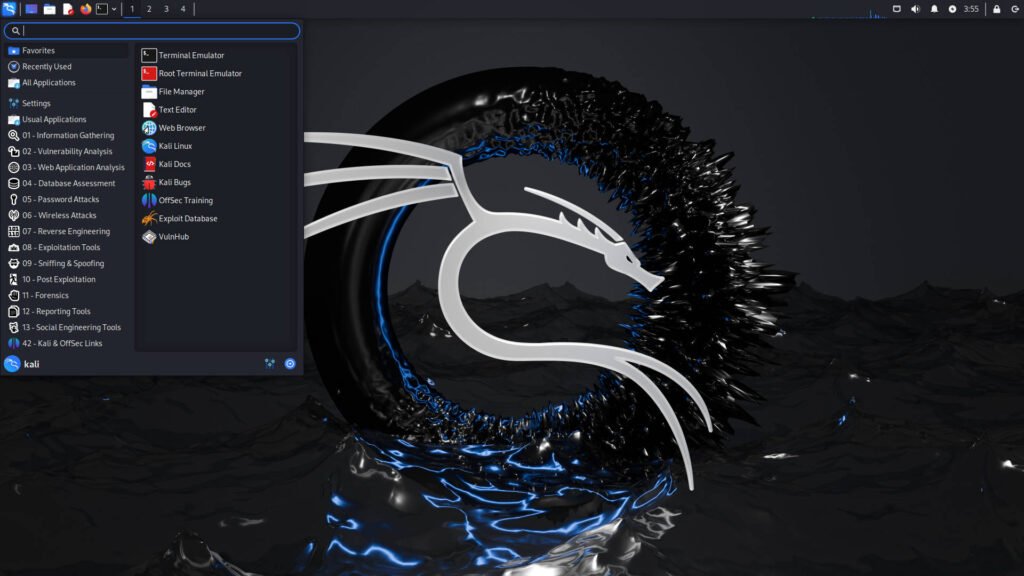Looking for the top 10 hacking apps? Whether you’re curious about cybersecurity tools or exploring ethical hacking, this guide provides a detailed explanation of each app. Discover their features, uses, and how they work to enhance your understanding of digital security and hacking techniques.

Top 10 Hacking Apps: Fully Explained
Before proceeding, it’s crucial to emphasize that using hacking apps for illegal purposes is unethical and illegal. This explanation is for educational purposes only, to highlight how these tools can be used for security testing and protecting your own systems. Always seek permission before using any hacking tools on systems that are not your own.
1. Metasploit

- Description: A powerful penetration testing framework that helps security professionals find, exploit, and validate vulnerabilities.
- Features:
- Large library of exploits
- Tools for developing and testing new exploits
- Integration with other security tools
2. Nmap (Network Mapper)

- Description: A free and open-source network scanning tool used to discover hosts and services on a computer network.
- Features:
- Network inventory
- Managing service upgrade schedules
- Monitoring host or service uptime
3. Wireshark

- Description: A network protocol analyzer that allows you to capture and interactively browse the traffic running on a computer network.
- Features:
- Deep inspection of hundreds of protocols
- Live capture and offline analysis
- Decryption support for many protocols
4. Aircrack-ng

- Description: A suite of tools for assessing WiFi network security.
- Features:
- Packet capture and export of data to text files
- WEP and WPA-PSK cracking
- Analysis of WiFi cards and drivers
5. John the Ripper

- Description: A fast password cracker that helps security professionals test password strength and discover weak passwords.
- Features:
- Support for various password hash types
- Ability to auto-detect password hash types
- Customizable and extendable
6. Burp Suite

- Description: An integrated platform for performing security testing of web applications.
- Features:
- Intercepting proxy to analyze HTTP/S traffic
- Scanner to automatically find security vulnerabilities
- Intruder tool for automating customized attacks
7. THC Hydra

- Description: A fast and flexible password-cracking tool that supports many different services.
- Features:
- Parallelized login cracker
- Support for numerous protocols
- Customizable and extendable
8. Nikto

- Description: An open-source web server scanner that detects vulnerabilities in web servers.
- Features:
- Scans for over 6,700 potentially dangerous files/programs
- Checks for outdated versions of over 1,250 servers
- Finds version-specific problems on over 270 servers
9. Kali Linux

- Description: A Debian-based Linux distribution designed for digital forensics and penetration testing.
- Features:
- Pre-installed with numerous penetration testing tools
- Regular updates and comprehensive documentation
- Customizable for different security testing needs
10. Zed Attack Proxy (ZAP)

- Description: An easy-to-use integrated penetration testing tool for finding vulnerabilities in web applications.
- Features:
- Automated scanners
- Passive and active scanning capabilities
- Support for a wide range of attacks
Ethical Considerations
While these tools can be used to identify and fix security vulnerabilities, their misuse for illegal activities such as unauthorized access, data theft, or disrupting services is illegal and unethical. Always obtain proper authorization before using these tools on any network or system that you do not own.
Conclusion
Hacking apps, when used ethically and legally, can be powerful tools for cybersecurity professionals to protect and secure systems. Understanding their capabilities and proper usage can help in creating stronger security measures and preventing cyber attacks. Always use these tools responsibly and within the bounds of the law. If you have any question than feel free to contact us at any time.


